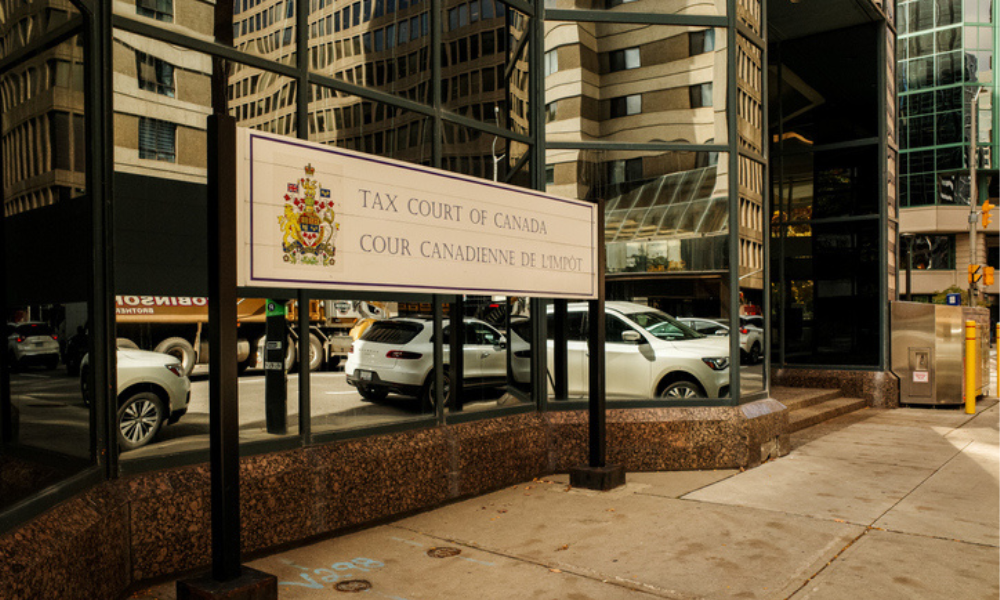
Lawyers alleged that COVID-19 guidelines in tax court were inadequate

The Federal Court has dismissed a complaint filed by a bargaining agent for lawyers which challenged the COVID-19 guidelines implemented in the Tax Court of Canada.
The Association of Justice Counsel (AJC) is the bargaining agent for lawyers employed by the federal Department of Justice and the Public Prosecution Service of Canada. AJC’s members regularly appear before federal courts, including the Tax Court of Canada. In Association of Justice Counsel v. Canada (Attorney General), 2022 FC 1090, AJC challenged the guidelines issued by the Courts Administration Services (CAS) in response to the COVID-19 pandemic. CAS provides administrative services in each of the federal courts.
Due to the increasing cases of COVID-19 in 2020, the federal courts ceased conducting in-person hearings. However, the Tax Court of Canada never transitioned to virtual hearings. Instead, it resumed in-person hearings, with several hearings being suspended on occasions due to COVID-19. In July 2020, CAS first published its guidelines for resuming in-person court operations in the middle of the pandemic. The guidelines were updated in March 2021, September 2021, and June 2022. The Attorney General of Canada asserted that CAS adopted “a layered risk mitigation approach with a combination of preventive measures used concurrently.”
The AJC had consistently advocated for the maximum possible use of virtual hearings. The AJC argued that the CAS guidelines were inadequate by failing to require all participants for in-person hearings to always wear appropriate masks, failing to provide resources and infrastructure for remote proceedings, and failing to show that the court had provided necessary heating, ventilation, and air conditioning for participants in judicial proceedings. It asserted that CAS violated the rights of AJC’s members under s. 7 of the Canadian Charter of Rights and Freedoms, which protects the health and safety of participants in judicial proceedings, including counsel. The AJC also presented an expert who reviewed the federal court and tax court’s guidelines, along with the CAS guidelines. The AJC expert concluded that these guidelines were inadequate for preventing the spread of COVID-19.
The federal court emphasized that “absent exceptional circumstances, an application for judicial review should not be entertained until the applicant has exhausted all adequate remedial administrative processes.”
The Attorney General argued that AJC had two adequate alternative remedies. First, AJC’s members could grieve under the collective agreement between the Treasury Board and the AJR. Second, AJC’s members could file complaints under the Canada Labour Code alleging unsafe working conditions. The Attorney General asserted that the core of this dispute was about the health and safety of counsel appearing before the federal courts as part of their employment, which made this a labour dispute.
The AJC argued that the dispute could not form a grievance because CAS was not the employer. The AJC pointed out that the collective agreement with the Treasury Board only allowed for grievances on matters affecting the “terms and conditions of employment” and that CAS’s decision did not relate to employment terms and conditions. The AJC also contended that its members could not file health and safety complaints to the employer because a courthouse is not a “work place” for lawyers who only attend to argue cases.
The Federal Court adopted the view that AJC’s members could not bring a grievance against CAS because it was not an employer of the members. However, the court said that the members could still bring a grievance against their actual employers because attendance as counsel in a proceeding was done at the direction of counsel’s employers and was a term and condition of employment. Employers that require their lawyers to appear in person in a court proceeding where it was believed to be an unsafe place was a health and safety issue that may be grieved, the court said, emphasizing that it was the actual employers of the AJC members that had the obligation to ensure that the workplace of their employees was safe, and they should allow their employees to refuse to perform unsafe work.
“The employers, to some extent, can control the activities of its employees appearing in a federal court proceedings. They can do so because it is the employers, and not CAS, who require the AJC’s members to attend court proceedings,” the Federal Court said. The court ultimately dismissed AJC’s complaint, concluding that the AJC could only challenge the CAS guidelines after it exhausted alternative remedies and only when the employers were unable to take reasonable steps to ensure safe working conditions.